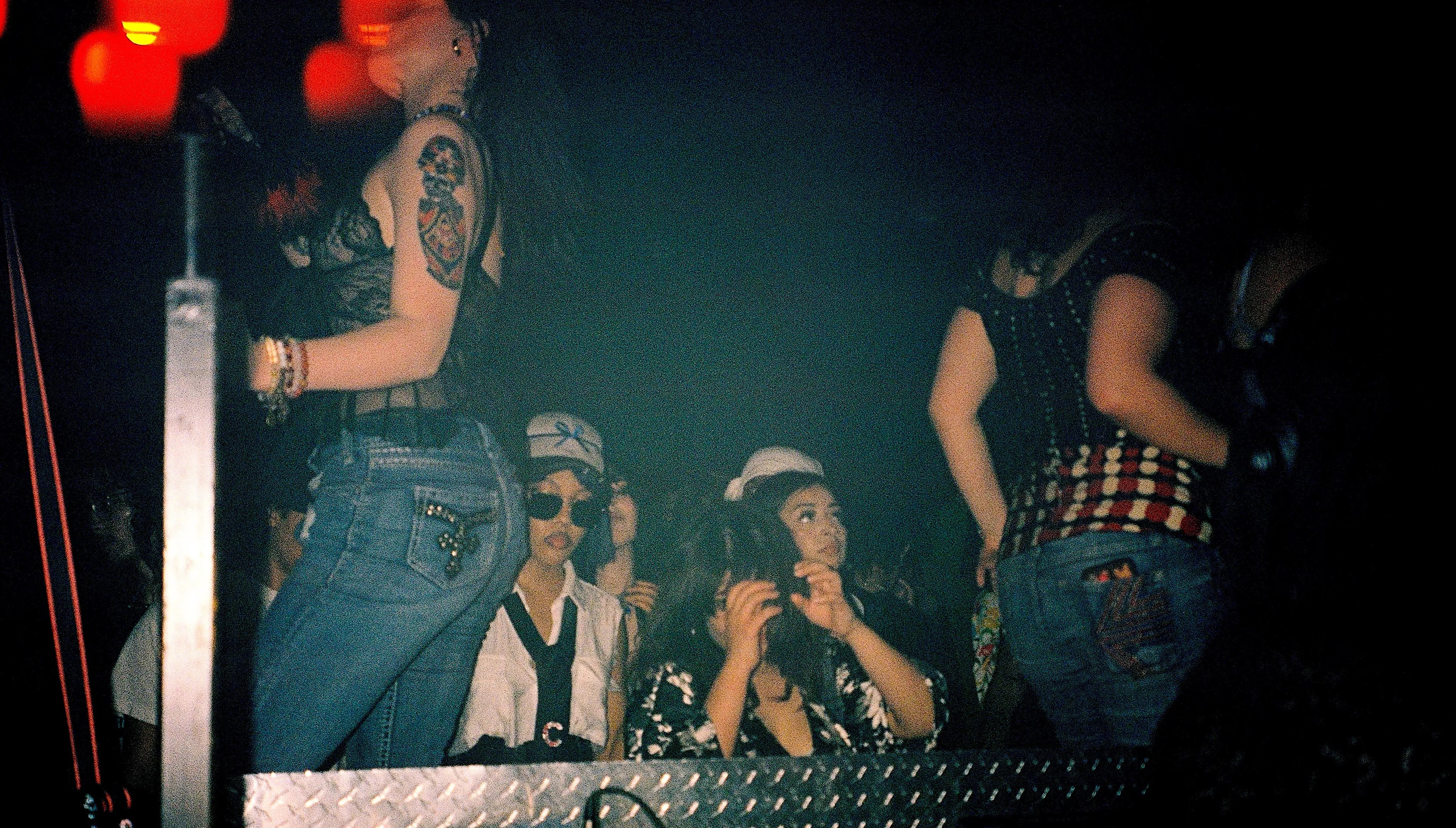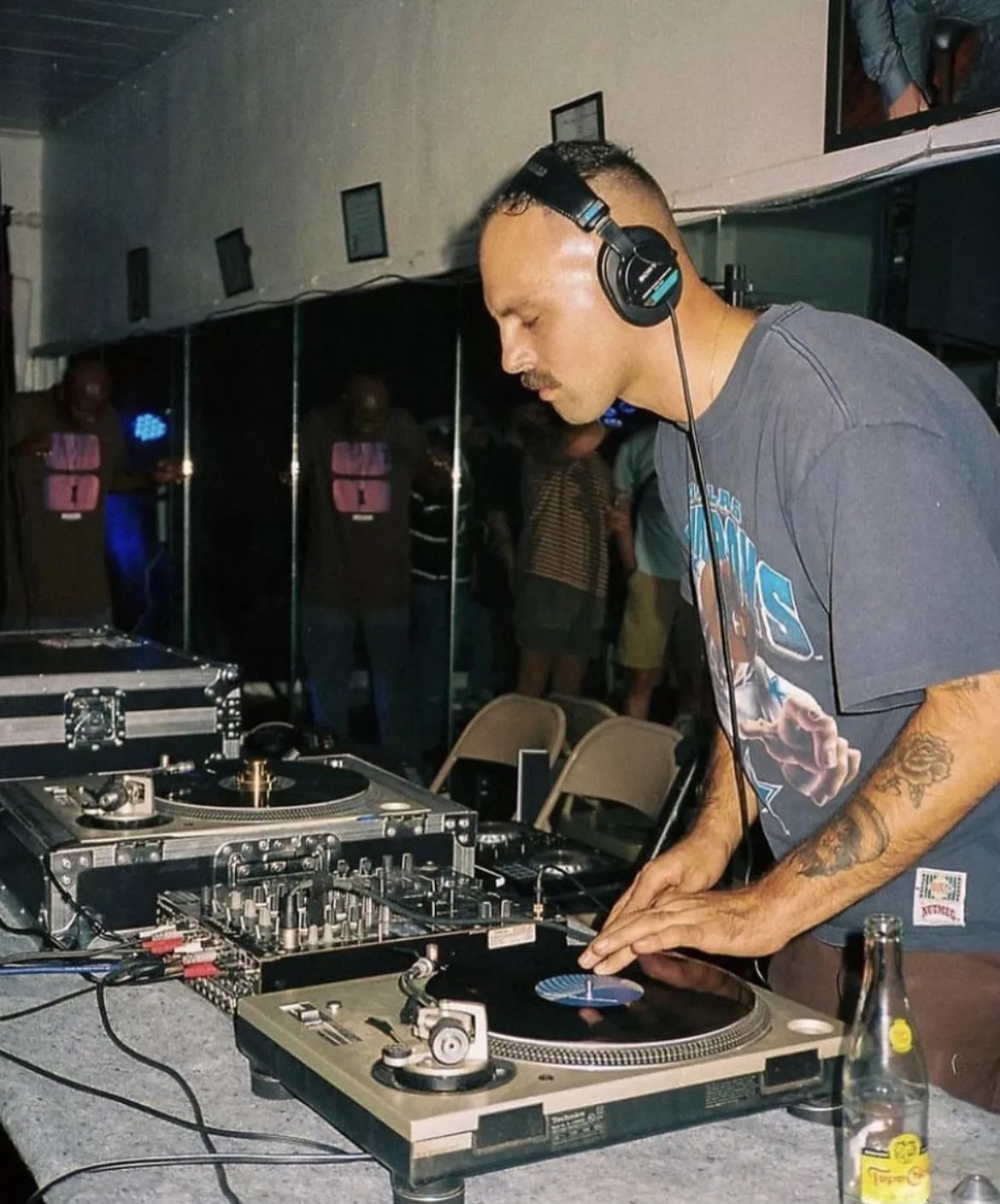
Katya Zakar

Audio By Carbonatix
Techno is gaining a stronghold in the country town of Fort Worth, but this surge in popularity isn’t all new. For those following the scene, this latest techno trend is a resurgence or even a renaissance.
Dallas has the club and nightlife infrastructure to keep the parties going – a tradition dating back to the famous Starck Club on McKinney Avenue – but Texas’ techno scene has been growing out of unlikely corners, crystallizing in Fort Worth’s current Gen Z techno awakening.
Techno came from Black musicians in Detroit, made its way to Berlin and across Europe, and, eventually, came to Texas. Techno in Texas comes with its own set of difficulties. For one, dancing in a warehouse with no air conditioning in the heat of summer’s triple digits is a difficult sell. Texas also has dance and nightlife laws unlike the North (so Footloose of us) that make the parties stop at a mere 2 a.m.
In the early days, the techno scene was centered around Dallas. DJ and producer Minto George started the label Down Low Music in Dallas in 1999, making a name for the city’s sound and also championing artists such as Fort Worth’s Plastic Sleeves and Austin’s Bill Converse.
Will you step up to support Dallas Observer this year?
At the Dallas Observer, we’re small and scrappy — and we make the most of every dollar from our supporters. Right now, we’re $15,250 away from reaching our December 31 goal of $30,000. If you’ve ever learned something new, stayed informed, or felt more connected because of the Dallas Observer, now’s the time to give back.
Back in those days, Fort Worth DJ Rick Simpson was playing techno in Dallas, not really Fort Worth.
“I was not focused on trying to do things in Fort Worth because I knew I could just go down the road and there would be a party ready [in Dallas],” he says. “This was probably ’95 to maybe early 2000s. I was really juvenile. I was playing all kinds of rave and techno and stuff mixed together… It was kind of a naive approach to everything because it wasn’t the internet days and everybody latching onto a certain clique or sound. It was just like ‘this is electronic music, we’re going to go party.'”
Tiago Verjao was one of Fort Worth’s techno pioneers during the early aughts.
“It started with me getting to travel places when I was younger and getting to experience house and techno in a broader sense in towns that have big DJ culture like New York, Chicago and San Francisco,” he says.
A small-town kid with early internet culture as his premier outlet, Verjao connected with artists in other cities through Myspace and would fly out to see them and shop for records.
Verjao was ready to bring techno to Texas and threw his first party at Rubber Gloves Rehearsal Studio in Denton.
“We did the first queer night, or LGBT night at Rubber Gloves,” he says. “We called it Denton Is Burning, named after the famous [film] Paris Is Burning.”
Verjao kept DJing throughout the area and eventually leased a loft in Cleburne, just south of Fort Worth.
“I would throw free private parties with kind of, like, world-renowned DJs from all around the world,” he says. “A bunch of people from all across the state of Texas would come, and it spawned off from there. It was kind of like a safe space party, which was kind of also not really heard of at that time.”
Varjao eventually stopped throwing parties, and his attendees became DJs themselves. The tradition continued, melding to the new generation of adherents who now carry it on their backs.

DJ Kowboy, or Skyler Salinas, switched from punk-rock to techno and never looked back.
Shelby Eligoyo
Years later, one of Varjao’s Cleburne followers, Skyler Salinas, entered the Fort Worth music scene with a punk band, transitioning to techno – as DJ Kowboy – after spending some time in Mexico City.
“A lot of people I know that used to play in bands, especially in the punk scene, started switching over to dance music, like techno specifically,” Salinas says. “All the other cities in Texas, they have a lot of DJs, but their scene isn’t necessarily as big. They don’t necessarily get as many people out. … I feel like DFW and particularly in Fort Worth now, we have a much larger and healthier scene.”
And now, Gen Z collectives such as Beverly Hills Cowboy are at the center of Fort Worth techno. The collective includes three resident DJs: Jesus Freak, Maya Loft and Luna, all in their early 20s.
Jesus Freak started throwing parties two years ago.
“It literally just started as a small series of parties I would throw with my friends,” he says. “Obviously, it ultimately grew into something way bigger.”
He grew up in a Mexican family, his childhood soundtracked by cumbias and other traditional Latin music. Conveniently, his uncle was a DJ and let him use his computer to try his hand at DJing.
“Being a kid, I would always go to my cousin’s house and just mess around with the computer and listen to some of the songs he had on there,” says Jesus Freak.
During the pandemic, he started watching YouTube videos about rave culture, immediately drawn to the ’90s parties being thrown in Chicago, Detroit and Berlin.
“I was seeing all of that stuff happening,” he says. “I was very inspired by it. I kept telling myself, ‘I want this here. I want the whole rave culture here.'”
And for all its mayhem, the pandemic had its small silver linings.
“When the pandemic happened and all the clubs in Dallas shut down, I think that really did help us in a way,” the DJ says.
The small parties grew from simple gatherings with friends, but still maintained their authentic DIY feel.
“I just want people to come here because they play amazing music and they offer an amazing space … We create an atmosphere,” says Jesus Freak. “We go above and beyond as far as setting up for a show. We make sure the lighting we have is going to wow people. We’ve used TVs in the past to create a whole atmosphere.”
The parties have grown so large that veteran DJs can’t help but pay attention.
“They will bring elements of rave and techno and cumbia, Latin-influenced stuff, some ’90s elements of electronics and that’s appealing to the people going out now,” Simpson says.
This sound is grounded in nostalgia, sure, but it’s also forward-thinking.
“Part of techno is always about the future and progression,” Simpson says. “And, if we’re always going backwards, we are not using the formula being futurists and trying to create something unique.”
Jesus Freak and Beverly Hills Cowboy are maintaining that safe space Verjao was after in Cleburne years ago.
“A big thing was building a community where people of color, whatever race, sexuality, anything can come together and feel safe and have fun,” Jesus Freak says. “That was my biggest thing – was creating a safe space for mainly queer, LGBT people.”
As a new generation takes on Fort Worth techno, the longtime DJs have the pleasure of bearing witness to the culture’s growth.
“Kids are enjoying it,” Verjao says. “I never thought in my life we would have safe queer space … People just dancing to techno music in the bar-type environment. The Fort Worth I grew up in was all rock ‘n’ roll. It wasn’t ever dance music.
“I really just hope kids keep enjoying the music and keep playing for one another and protecting each other and having these experiences together in these environments … It’s important for people to feel liberated and be able to dance in colors.”